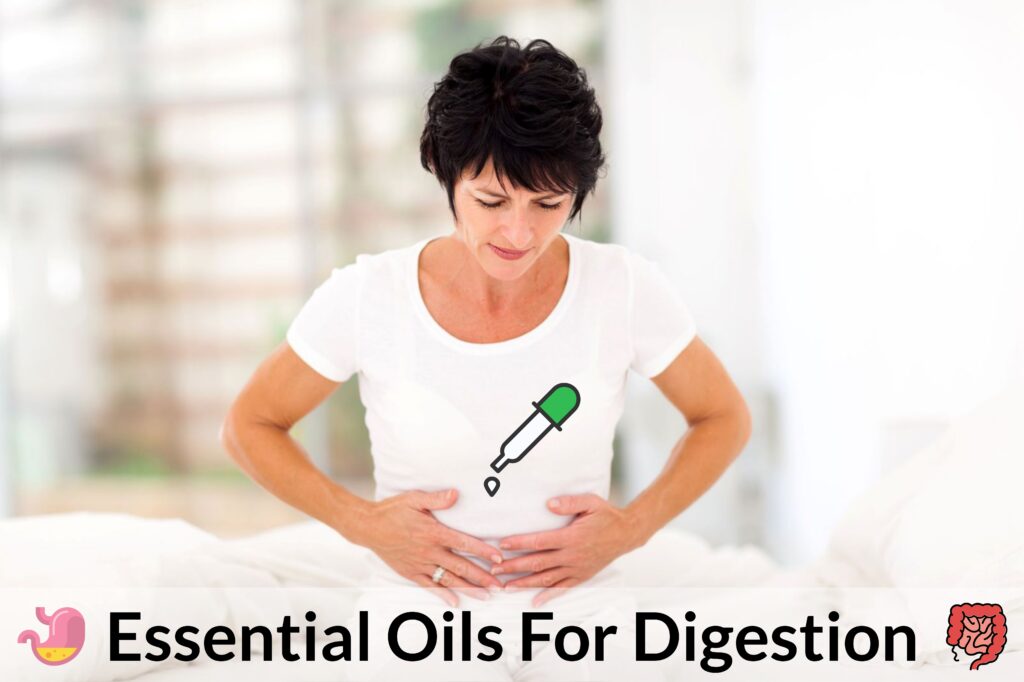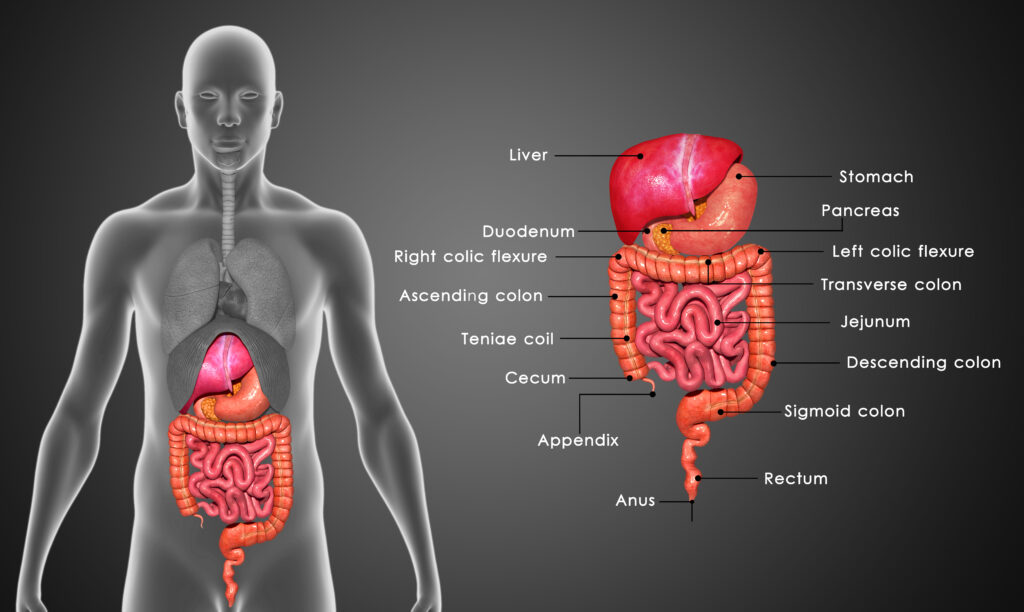Whether it was the smelly kid at school, your best friend or your parents, we all have had our fair share of food myths served to us like a buffet when we were kids.
Being a kid is fun (it was for me anyway), I still fondly remember the fun I had. I was worry-free. I didn’t have to worry about paying rent or bills. God, why did I have to grow up!
But on the downside, as kids, we were gullible. It doesn’t matter if you were a little genius like young Sheldon, there are myths that were told to you and you believed them, for quite a long time I might add. Heck, you probably secretly believe some of them.
Most times the food myths were told to us to con us into eating food we weren’t quite fond of – veggies.
If you finish your plate of spinach/broccoli, you’ll be as strong as Popeye, we were told (yes back then, the Avengers and the justice league were not such a big deal). And if you eat carrots, you’ll see clearly like a cat in the dark.
I remember one time at dinner eating 5 raw carrots with so much excitement only to bump into house walls at night trying out my new ‘night vision’ power.
The following morning I woke up with bumps on my forehead. My parents did not ask me a thing. Guess they heard the racket at night and knew what happened. They probably had a good laugh too.
Now that I’m all grown up and not so gullible and naïve, I know that gum does not remain in the stomach for 7 years as it’s being digested and neither do fruit seeds grow into trees when swallowed.
If this was the case, by now I would have a watermelon ‘stomach garden’. Honestly, the people who came up with these two were mean.
The digestive system is efficient, though not enough to grant you night vision or super strength. But do not mistake this for it being boring it is not. It is exciting and interesting. Here are some facts that will blow your mind.
- We produce 1.7 liters of saliva daily
- The stomach of an adult can hold 1.5 liters of food
- In a year an adult consumes an average of 500 kgs of food
- You can still swallow your food even when standing on your head – believe me I tried
Now I’ve successfully managed to paint the digestive system as a mean machine. Kinda like the engine of the Range Rover Velar (powerful and efficient).
However, it’s not without its fair share of challenges especially with the 21st-century diet and lifestyle changes. Luckily for you, essential oils are here to the rescue.
But first, let’s understand the situation in its entirety.
The Digestive System and Digestion
For everything you do, you need energy. The digestive system is uniquely designed and constructed to provide you with the energy needed to survive and to package and get rid of the waste. Being a system, many organs work together to achieve this role.
Now the digestion process is complex and fascinating at the same time. It is the process of converting foods consumed into energy as well as waste products. Digestion is done in steps as the food goes through a long tubular structure starting from the mouth and ending at the anus.
As the food is propelled through the system, it’s altered by hormones, enzymes, and bacteria present. The food takes an average of 40 hours traveling through the system before its waste is excreted.
Come, let’s go on the digestion journey – like Alice in one hell of a hot, humid, acid filled twisted wonderland.
The Mouth
This is the entry point for food. Note that the digestive system usually gets ready for the food even before you put the food in your mouth. Smell and sight are enough to get it riled up.
The salivary glands will fill up your mouth with saliva awaiting the food. So you should stop thinking you are greedy when this happens. It is just the body’s natural reaction to food.
Once the food is in the mouth, you will start chewing. The chewing process will break it down into smaller pieces that are easier prey for salivary amylase (an enzyme contained in saliva).
The teeth grind and cut during this process. The tongue during this process helps in mixing saliva with the food and later pushing it to the back of the mouth for swallowing.
The Esophagus and Pharynx
The pharynx, better known as the throat, is the area between the esophagus and the mouth. While in this space, the bolus (the name given to the ball of food being swallowed) can go down the windpipe which leads into the lungs (wrong path), or down the esophagus and into the stomach 25 cm below.
So why doesn’t the bolus go down the windpipe? Well, the swallowing process triggers a complex process which ends up with the temporary closure of the windpipe. Food is as such forced to move down the esophagus. This is a predominantly a reflex action though you have some bit of control.
The esophagus is simply a tube made of muscles. It contracts rhythmically to push food towards the stomach. Yes, you heard me right. Food does not go into the stomach by gravity. Strong muscles are in play. It’s the reason you can swallow food even when standing on your head.
Once the bolus reaches the roof of the stomach, the lower esophageal sphincter opens to let it in and closes behind it. This sphincter is important in ensuring that food that makes it to the stomach is not regurgitated.
The Small Intestines and the Stomach
In the stomach, enzymes and acid produced by the triple stomach wall continue processing food. The stomach walls also churn the food. For three hours, food in the stomach is mixed and processed into chyme.
The thick fluid is released into the duodenum (the first bit of the small intestines). Here, enzymes from the liver and pancreas further process food as it moves to the small intestine.
Quick fact: the small intestines are not so small. The surface area of the small intestine of an adult measures about 2700 feet. This is close to half a basketball court. Imagine that!
Now the small intestines have three parts – the duodenum, the jejunum (I’m in love with the pronunciation of this word. I can’t have enough of it) and the ileum. The last two segments are responsible for the absorption of nutrients into the bloodstream.
From the small intestines, the small intestines move into the colon.
Colon Rectum and the Anus
The main role of these three parts is to solidify waste product by absorption of water and storing the waste until you poop. The colon is divided into four bits;
- The sigmoid colon
- Descending colon
- Transverse colon
- Ascending colon
Together they measure about 7 feet and connect to the rectum. The rectum is an 8-inch chamber that does the actual ‘storage’ of the waste product for a while.
The rectum has sensors that send messages to the brain to alert you that you need to poop. Yes, you just do not feel the pressure and decide to poop. A lot of behind the scene messaging has to take place.
The last part of the digestive system is the anus. It measures about 2 inches long. It has two sphincters, the external and internal sphincters.
The lining of the anus is designed to detect the content of the rectum. It alerts you whether it is gas, solid or liquid. I can’t begin to imagine the chaos and embarrassment some of us would have gone through if this was not one of the powers of the digestive system (It is hilarious just thinking about the confusion and wrong guessing of content).
Accessory Organs
There are three organs that lend the digestive system a hand. They are instrumental for the efficient breakdown of food.
The pancreas: this is mostly associated with blood sugar levels. Since it produces insulin, this is a correct association. However, as part of the digestive system, the pancreas produces enzymes that aid in the digestion of carbohydrates proteins and fats.
The Liver: it is in this organ that bile is produced. Bile is important in the breakdown of fats. It is stored in the liver. Toxins present in the food are filtered by the liver before they cause harm.
The Gallbladder: this is the actual part that stores bile. It is found in the liver. When fatty foods arrive in the duodenum, it contracts and consequently releases bile.
As we end this section here is another digestive system fun fact. Laundry detergents contain enzymes similar to those present in the digestive system. These enzymes include amylases, lipases, and proteases. These work to break down carbohydrate, fat and protein stains respectively.
Common Digestive Problems
Is it just me or is there something about digestive problems that make people shy off from their public discussion? Many prefer suffering in silence. But unbeknownst to them, studies show that clinics are treating a lot more digestive disorders today than they used to.
Below is a rundown of some of the common digestive problems. Pay keen attention, I might have your problem covered.
Constipation
This is a digestive problem where the bowel movements are infrequent. In some, poop is usually difficult to pass. It is more of a symptom of other health problems rather than a disease itself.
What is considered normal bowel movements varies. For some, passing stool thrice in a day is normal and for others normal is passing stool thrice in a week.
However, if you have fewer than 3 bowel movements weekly, you are constipated. When it gets to this point, your stool will harden and become increasingly painful to pass. You might have to carry along your favorite magazine, newspaper or novel to keep yourself entertained while you are at it.
Constipation is caused by insufficient fiber in the diet, not drinking enough water, change in routine (such as traveling), and some types of medication. Constipation is also prevalent in pregnancies as the high hormonal levels slow down digestion.
Usually, constipation is not serious. It appears suddenly and disappears in the same way. However, there at times it is chronic and stays for long. At such times, complications may develop. These complications may include anal fissures, hemorrhoids, fecal impaction and rectal prolapse.
Diarrhea
We all know of this condition. It is where you pass watery, lose and soft stool. Some of its symptoms include:
- Fever
- Bloating
- Stomach cramps
- Dehydration
Diarrhea does not need tests to be diagnosed. The appearance of the above signs and symptoms is enough to medicate.
It can be caused by viral and bacterial infections, parasites, alcohol abuse, food allergies and reactions to certain types of medication.
Gastroesophageal Reflux Disease
This is a condition in which the stomach acid back up into the food pipe. It is often referred to as acid reflux. When this happens, you will experience a burning sensation in your chest. It often occurs at night or right after meals.
While it is not alarming for one to experience heartburn and an acid reflux once in a while, it should be alarming when it happens frequently, say twice in a week. It could be a symptom of GERD.
The condition is often accompanied by tooth erosion, bad breath, nausea, and heartburn. Some individuals find relief in avoiding beverages and foods that trigger these symptoms.
Gallstones
These are simply hard deposits in the gallbladder. The gallbladder is responsible for the secretion and storage of bile. Gallstones tend to form when one has too much waste of cholesterol in their bile or when the gallbladder is not emptying as it should.
When the gallstones align themselves on the ducts and cutoff the gallbladder from the intestines, a sharp pain is felt in the top right side of your abdomen. You can have medication dissolve the gallstones or proceed with surgery to get rid of them.
Celiac Disease
It is also known as Sprue. It is a reaction, an autoimmune response to the gluten present in rye, barley, and wheat. If you have this condition, eating foods with gluten will trigger an immune response in your ileum.
Over time, the reaction will alter and damage the lining of your small intestines and consequently impair absorption of nutrients. This damage results in fatigue, weight loss, anemia, bloating and diarrhea.
In children, the condition can lead to impaired growth and development in addition to all other symptoms that manifest in adults.
While some individuals may not have any signs and symptoms, the only true treatment of the disease is avoiding foods rich in gluten. Go for gluten alternatives including lentils, quinoa, brown rice, corn flour, and amaranth and soy flour.
Crohn’s Disease
In my head, this sounds like a name you would expect to hear in a Sci-Fi movie. In real life, this is an inflammatory bowel disease.
It results in the inflammation of the digestive tract which leads to abdominal pain, fatigue, weight loss, malnutrition, and diarrhea. The inflammation as a result of this disease can occur in virtually any part of the digestive system.
While there still isn’t a known cure for the disease, the symptoms can be managed by therapies – a person can function normally.
You should see a doctor when you have blood in your stool, dramatically lose weight and have a fever that lasts for more than two days in addition to the above-mentioned symptoms.
Ulcerative Colitis
This is yet another inflammatory bowel disease. It causes inflammation like Crohn’s Disease and ulcers along the digestive tract. Mostly, it attacks the inner walls of the rectum and the colon. The symptoms tend to develop gradually.
This condition can result in life-threatening complications. While there isn’t a cure for the condition, some treatments can help reduce the symptoms and even cause long-term remission.
The symptoms of this condition include:
- Diarrhea with pus or blood
- Cramping and abdominal pain
- Defecating urgencies (this sounds really funny)
- Fatigue
- Fever
- Weight loss
- Rectal pain
Most people with this condition experience mild symptoms. The cause of ulcerative colitis varies in different people. Also, depending on where the inflammation and ulcers appear, the condition is given different names.
Irritable Bowel Syndrome
This disorder is pretty common. It affects the colon. Its symptoms include abdominal pain, cramping, gas, bloating, constipation and diarrhea. Luckily, only a handful of persons with his disease experience severe symptoms. The severe symptoms can be treated with counseling and medication.
Note that IBS does not result in changes of the bowel tissues or increase the chances of developing colorectal cancer. Causes of cancer include severe infection, abnormalities in the nervous system and inflammation in the walls of the intestines.
Symptoms That You Have Digestive Problems
Bad Breath
If you are having bad breath, the kind that does not seem to go away even after brushing your teeth after every meal, you probably should take a deeper look into it.
The problem is not your teeth but your digestive system. Having a fishy smell denotes a kidney problem while a fruity smell denotes diabetes on the fritz.
Body Odor
Impaired digestion leads to an overproduction of smelly chemicals in the digestive system. When these chemicals are reabsorbed into the body they are excreted through the skin as sweat.
Foods rich in proteins are usually difficult to digest. In addition to this, they take way longer than other foods. They are the number one cause of foul body odor.
If you notice a foul smell after eating, then your digestive enzymes may be low. If this is the case, you should strive to avoid fatty foods and red meats which prove harder for the body to digest.
Anemia
If you suspect you are anemic, in addition to seeking its treatment, you should also have your digestive system looked into. Anemia is caused by a deficiency of iron.
Low iron levels are often caused by gastrointestinal blood loss. In addition to this, insufficient acids and digestive enzymes in the stomach which lead to impaired digestion is a cause of iron deficiency.
Brittle Nails
This is an indicator that you do not have sufficient stomach fluids to complete the second stage of digestion. As such, any protein zinc and calcium from the foods you eat will not be absorbed into the body. Eventually, this leads to unhealthy nails and hair.
Acne
Acne and other skin problems including psoriasis, dermatitis, rosacea, and eczema start with digestion problems. Yes, conditions that see way unrelated to the digestive system have their beginning and cause from the gut.
If you are suffering from flaky and dry skin, your body may be struggling with the digestion of fat courtesy of low production of lipase.
In addition, if your body is not breaking down food efficiently, you would experience a shortage of vitamins essential to the glowing and smooth skin like E, K, and A.
How To Prevent Digestion Problems
With the digestive system, you just need to be cautious with how you treat it. Treat it well and it will surely pay you back in kind. Below are some tips to keep everything in check.
Eat Meals Frequently
Weight loss regiments recommend that you eat food in smaller portions but frequently. This helps in boosting the body’s metabolism and prevents overeating. This rule also helps in maintaining a healthy digestive system.
When you overeat, the digestive system becomes overloaded. Remember that the stomach can only handle 1.5 liters of food. But this does not mean you have to fill it up every time. Well, you could but most of it will end up in your drainage system. With the overload, the system is not efficient.
Strive to have about 5 mini meals daily.
More Fiber
Fiber helps in heart health and weight loss. Fiber is important for digestive health. There are two types of fiber; soluble and insoluble fiber. Soluble fiber tends to make a gel in the gut that helps to keep you satiated while the insoluble fiber contributes bulk to excrement.
The recommended intake for men is 38 grams for females is about 25 grams. With enough fiber in your system, you shouldn’t have problems with your digestive system.
Drink Lots of Water
It is said that you should have 8 glasses of water daily. However, what people forget is that this is a minimum. You should drink as much water as your body needs. Water helps in preventing constipation and facilitates efficient absorption of nutrients.
As you increase your water intake, you should reduce the sugar intake that will add problems to your digestive system.
Essential Oils
Essential oils have gained popularity in the recent past, and deservedly so. They have lots of benefits. And when used properly they have no side effects.
What Are The Best Essential Oils For Digestion
Below are some essential oils you can use to ease symptoms for your digestion problems.
1. Peppermint
This essential oil has been in use for the longest time now its use can be traced back to ancient Egypt and Rome. In these times, it was considered a magical portion. It is loved for its strong aroma.
Health experts have run tests to prove that it works to relieve stomach aches, irritable bowels, nausea, and cramps. It also strengthens the walls of the intestines and stomachs.
2. Ginger
If you are into Asian cooking, you are familiar with ginger. The root is commonly used in Asian dishes for its taste and aroma.
It is believed to have great results on the digestive system. It is rich in gingerol which is a powerful antibacterial and anti-inflammatory compound.
It naturally helps to remedy vomiting, nausea, and indigestion.
3. Clove
The digestive tract is often attacked by inflammation. Inflammation leads to a host of problems including bloating and pain.
Clove oil is a natural remedy that works to heal inflammation and reduce spasms. Overall it helps in relaxing the digestive tract.
4. Oregano
This is another powerful essential oil believed to have strong benefits for the digestive system. It has antibacterial, antifungal and anti-parasitic properties.
Most people who have used oregano oil believe its benefits far outweigh that of OTC drugs designed to get rid of pathogens in the digestive system.
5. Cardamom
Cardamom is a popular and expensive spice that is used in a lot of dishes. It contains lots of unique components that facilitate the digestion process. It serves as a stimulant for the digestive system which helps in easing the secretion of bile juice and gastric juices.
Essential Oil Recipes for Digestion
Recipe 1: Bloating Roller Blend
What you need:
- Fennel – 5 drops
- Fractionated coconut oil – 1 tablespoon
- Roll-on bottle – 5ml
Method
Honestly, there is nothing that can get you down and out like a bloated stomach. Bloating is simply an abdominal swelling that results from overeating. We have all experienced it once or twice following a party with buffet service. It is also caused by menstruation, food allergies and constipation. It is super uncomfortable. But this trick will work wonders.
Mix the ingredients in a roll-on bottle. Apply the blend on your stomach once or even twice a day as the need arises.
Recipe 2: Roll-On Recipe for Constipation
What you need:
- Lemon – 1 drop
- Rosemary – 1 drop
- Peppermint – 1 drop
- Fractionated coconut oil – 1 tablespoon
Method
We have gone over what constipation is and how it is classified so no need to go back to that. What I can say is that it is a nasty condition, not life threatening but nonetheless uncomfortable and embarrassing.
Luckily, essential oils like lemon, peppermint and rosemary make great blends to ease the condition. You should really give this time tested a try.
The essential oils are potent and powerful. As such, the fractionated coconut oil is important it helps in diluting. Once the blend is ready, you can massage it on your back and stomach.
Recipe 3: Anti-Diarrhea Aromatic Oil Blend
What you need:
- Fennel – 2 drops
- Peppermint – 3 drops
- Fractionated coconut oil – 1 tablespoon
- Roll-on bottle – 5ml
Method
Serious cases of diarrhea last for more than 2 days. It often leads to dehydration. And the funny thing about diarrhea, it causes one to sweat like crazy (or maybe it is just me?) this blend should relieve the problem at hand.
You should apply the blend on your stomach as needed. It will ease the symptoms over time.
Recipe 4: Rekindle Digestive Fire
What you need:
- Ginger – 3 drops
- Lemongrass – 3 drops
- Lavender – 3 drops
- Roman chamomile – 4 drops
- Peppermint – 2 drops
- Coconut oil – 2 tablespoons
Method
As we age, our bodies tend to slow down. The digestive system is one of those that slow down over time. If you need to give the digestive system a boost you should use this blend. It is designed to stimulate digestion. You can rub it on your belly, or if you like, at the bottom of your feet.
To make this blend, mix the essential oils with the coconut oil preferably in a bottle. Give it a good mix and apply as per above.
Recipe 5: Digestive Support Diffuser Blend
What you need:
- Lavender – 3 drops
- Lemon – 3 drops
- Peppermint – 2 drops
- Diffuser
Method
Just so that we are on the same page, a diffuser is a gadget designed to use room temperature to blow essential oils into a nebulizer and vaporize into the air. They are fast and efficient, and you can pick any diffuser of your choice.
Add the oils into the diffuser along with approx. 100ml of water or as per the manufacturer’s instructions.
Recipe 6: The Ultimate Digestive Rub
What you need:
- Cardamom – 4 drops
- Ginger – 3 drops
- Lavender – 2 drops
- Black-pepper – 5 drops
- Peppermint – 5 drops
- Jojoba oil – 1 oz. (30ml)
- Container – 1 oz.
Method
Most of the useful components in the essential oils used in this blend are small enough to go through your skin and be carried around the body in the bloodstream. As such, rubbing the oil on the abdomen will help in soothing a full stomach, speeding up digestion and easing acid reflux and gas.
Mixing the ingredients in a container is all the work you need to do to complete the blend.
Conclusion
Courtesy to the global marketplace, it is becoming easier and easier to choose natural and pure solutions to our problems. Choosing essential oils to ease health symptoms is a great choice.
When used right, there are no repercussions or side effects to worry about. If you value your digestive system, start by eating a healthy, balanced diet everyday and you won’t have any problems in future.













